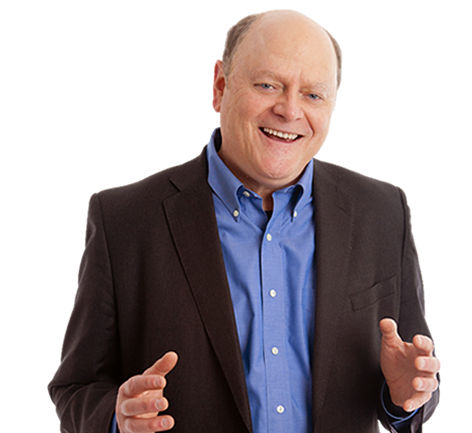 I can’t let the moment go by without saying something about the recent death of Studs Terkel. Studs was 96 years young when he died October 31, 2008. I have one degree of separation from Studs — I have Chicago friends who actually know him. I’ve heard him speak, only a few years ago when he was “only” 91. His lunch keynote at the QRCA conference was as lively and relevant as any speaker you could wish for. If you are unaware of this man, read his bio here. I have a few comments to make about him related to creativity and innovation. Briefly, Studs was an award winning writer, broadcaster, actor, and a civil rights/civil liberties activist. He interviewed the likes of Muhammad Ali, Janis Joplin, and Martin Luther King.
I can’t let the moment go by without saying something about the recent death of Studs Terkel. Studs was 96 years young when he died October 31, 2008. I have one degree of separation from Studs — I have Chicago friends who actually know him. I’ve heard him speak, only a few years ago when he was “only” 91. His lunch keynote at the QRCA conference was as lively and relevant as any speaker you could wish for. If you are unaware of this man, read his bio here. I have a few comments to make about him related to creativity and innovation. Briefly, Studs was an award winning writer, broadcaster, actor, and a civil rights/civil liberties activist. He interviewed the likes of Muhammad Ali, Janis Joplin, and Martin Luther King.
What can we learn about creativity from Studs?
Be who you are: Studs was about as liberal as you can get and he made no bones about it. He was self-expressed on the radio and in writing and he did it his way. He did this in spite of being blacklisted during the McCarthy era — but he refused to be shut down. Don’t suppress the essence of who you are even if it’s very different, even if you are punished for it, it’s where your personal creativity lives. It also might be a great way to live a very long and interesting life!
Quantity matters: Studs would not be famous if he hadn’t done so much. His life is a record of creative persistence and productivity. Thousands of interviews, quite a few books, thousands of radio and TV broadcasts. If you look at any one thing he’s not that exceptional. If you look at his whole creative life you can’t help but be impressed. His most important work happened after he was 70 years old. Lesson: whatever your creative product is, produce a lot of it.
History provides perspective: One of the things about Studs that was impressive was that he simply knew things — a lot of things. His knowledge of historical events was no doubt enhanced by all the people in the news he interviewed and his own involvement. I heard him speak of the short memory of American’s who wanted to get rid of government programs. He gently reminded some young people that their parents and grandparents were rescued by programs like the WPA and the CCC during the great depression. If you want to be more creative, whatever it is you do, know the history because it informs the context of the present. Studs said this: “I’ve always felt, in all my books, that there’s a deep decency in the American people and a native intelligence — providing they have the facts, providing they have the information.” Amen brother. If you haven’t read any books by Studs, pick up Hard Times.
Keep your chin up: Studs was an optimist, always. Even after breaking his hip a few months ago he could joke about it, he said, “I was walking downstairs carrying a drink in one hand and a book in the other. Don’t try that after ninety.” He wrote books in order to bring hope into people’s hearts, and he did. He often ended his radio show by saying “take it easy, but take it.” Advice worth taking, thanks for all you did Studs.



2 responses to “The Creative Life of Studs Terkel, Three Things”
What a great piece and what terrific advice. What most people don’t know is that creativity is about how you think, not what you create. Your tips from Mr. Terkel clearly illustrate that distinction.
Studs sounded like one interesting guy with a realistic angle on life. An eternal optimist too.
Never heard of him before, but then I’m not an American.
Might just pick up that book of his you mentioned.
Best regards,
Alex